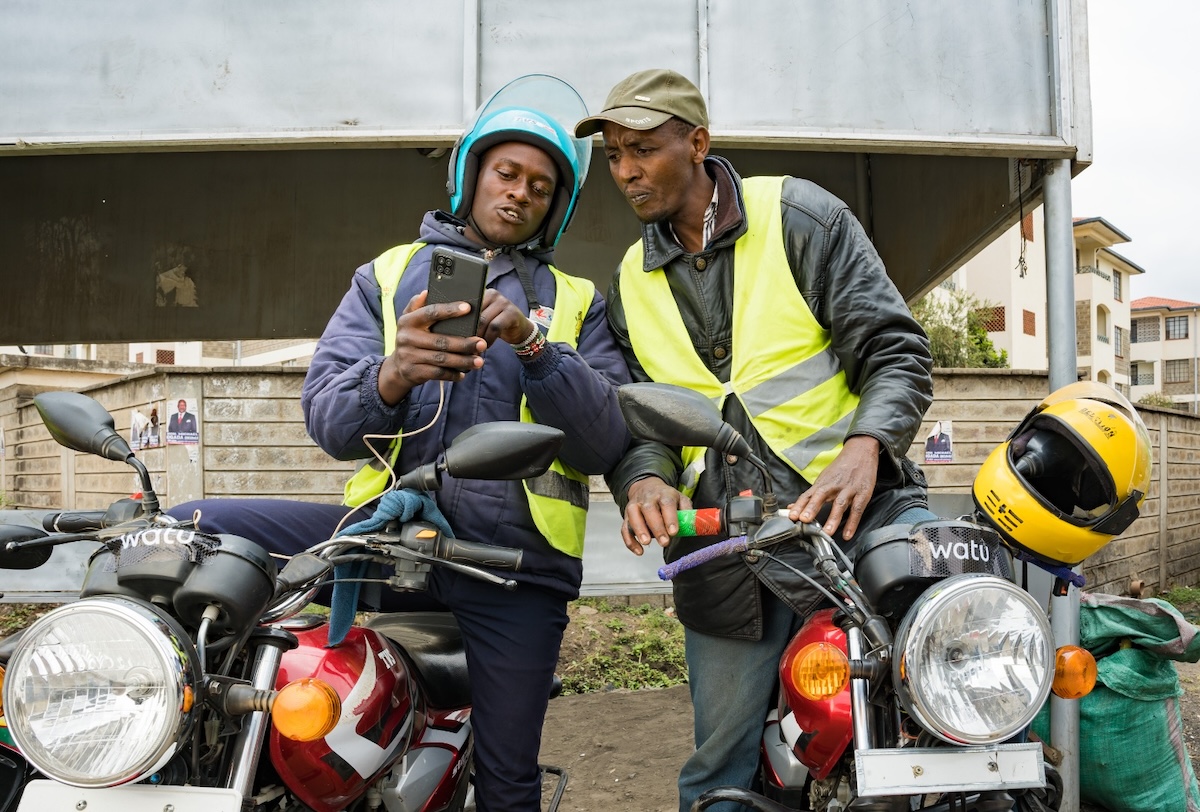
Smartphone financing is steadily gaining momentum in Kenya and across Africa. Over the years, various device financing models have emerged, offering pathways to affordable smartphone ownership for underserved populations.
According to GSMA, buy-now, pay-later (BNPL) and pay-as-you-go (PAYGO) models are two approaches, each with its unique features and eligibility criteria.
In the BNPL model, users make an initial down payment and pay the remaining amount in instalments over a specified period. This model relies on credit assessment algorithms to determine users’ creditworthiness based on their usage patterns and bill payments. While BNPL models offer flexibility and convenience, they may require users to have a formal credit history, potentially excluding underserved populations.
The PAYGO model, on the other hand, provides devices to applicants with minimal credit checks, relying on built-in, device-locking technology to mitigate the risk of default. Under this model, devices serve as collateral, with users gaining full ownership once they have made all the payments. While PAYGO models cater to unbanked populations and those with irregular income streams, they may have higher upfront costs and interest rates to offset the risk associated with minimal credit checks.
In Kenya, asset finance solutions provider Watu Africa through its Watu Simu subsidiary has been spearheading this financing by offering tailored financing options for different devices.
Founded in 2015, Watu Africa has today sold over one million mobile devices in the Kenyan market alone. Beyond Kenya and Tanzania, Watu Simu now has more than 1.5 million mobile device customers, becoming the fastest-growing smartphone financier in sub-Saharan Africa.
In an interview with TechTrends Media, Erick Massawe, Watu Africa’s Country Manager for Kenya, explained that the concept for Watu’s connected devices wasn’t new. The company conducted several pilot tests until 2022, when they identified a genuinely ready market.
“We have seen this idea taking off with other players in Kenya, and we are not the first to do smartphone financing. We did a pilot, in three months, and we sold 30,000 devices in 2022,” Massawe said.
“In 2023, we challenged ourselves to do 10 times the number and ended up selling 500,000 devices. With certain exponential growth, what this tells us as a business, is that there is a good market product fit.”

Supported by interesting data points such as internet penetration and smartphone adoption, Massawe said it really was an indication that this was something that could grow bigger. He further noted that Watu’s smartphone financing involves a partnership with Samsung Mobile.
The collaboration came about because the latter has a locking solution called Knox Guard which is quite robust and allows Watu to finance smartphones and tablets on a pay-go model.
The software basically locks and unlocks the gadget depending on customer payment which allows Watu to self-collateralise the asset which opens up the opportunity for people who do not have collateral and mass market in that regard.
Samsung Knox Guard allows one to remotely manage, message and if necessary, lock Samsung devices to reduce an organisation’s financial risk, black market sales of devices and overdue subscriber payments.
“Our partnership with Samsung came about from a security perspective. As an asset financier, issuing an asset that is not well secured and can be breached, is as good as giving these assets for free and one can never be sustainable that way,” Massawe continued.
“We did our research and realised that the one company with a robust security is Samsung and then we approached them, forged a partnership and now we are here.”
Massawe said that as a company, they view the e-mobility sector as one that compliments their connected devices component.
“As a boda rider, with a smartphone, you are connected to the digital economy. With a smartphone, you can join ride-hailing apps or delivery apps and that expands one’s business horizon. The adoption has been crazy good and that is why our numbers have been exponential,” he added.
“There are two main reasons why people would take a smartphone as a finance product; Staying connected and as a tool of trade and sometimes it can be both plus an aspirational product,” he said.
Watu says it’s actively working to bridge the digital divide in Kenya and Tanzania by financing the acquisition of quality smartphone devices for diverse clients. With average smartphone device costs ranging between Ksh 45,000 and Ksh 80,000, Watu Simu solutions are coming in handy for discerning customers seeking to acquire quality devices to power their economic production ventures.
Additional reporting by Nixon Kanali.
Follow us on Telegram, Twitter, and Facebook, or subscribe to our weekly newsletter to ensure you don’t miss out on any future updates. Send tips to editorial@techtrendsmedia.co.ke



